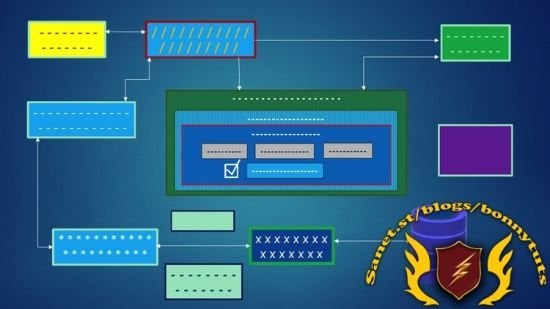
Last updated 7/2024
Created by Howard Hyde
MP4 | Video: h264, 1280×720 | Audio: AAC, 44.1 KHz, 2 Ch
Genre: eLearning | Language: English | Duration: 66 Lectures ( 7h 57m ) | Size: 4.74 GB
With Spring Security, JWT, SSL/TLS, HTTPS, Digital Certificates and Public Key Infrastructure (PKI)
What you’ll learn:
Comprehensive Security for Spring Boot REST web service applications: HTTPS, User management, Authentication, Role-based Authorization
General principles of cyber security: Threats and defenses, Cryptography (encryption/decryption/hashing; symmetric/asymmetric), TLS, cypher suites
Implementing user/security and business databases, JSON Web Tokens (JWTs) and SSL/TLS over HTTP (HTTPS) communication with web services
Spring Security Framework: Architecture, Theory, practical examples: Configuration, filters, authentication and authorization
Requirements:
Intermediate Java programming and Spring Boot development knowledge
Description:
A complete practical case study and tutorialfeaturing the Spring Security framework.Filters and configurationAuthenticationJSON Web Tokens (JWT)Role-based AuthorizationIn-depth theoryAlso:General Cybersecurity principles and conceptsCryptography: Encryption, encoding and hashingSymmetric and Asymmetric (public/private key) encryptionHTTP over SSL/TLS (HTTPS)Digital Certificates & Public Key Infrastructure (PKI) TLS Cipher Suites and handshakesCase study of a Demo App with 2 Spring Boot REST web services, an Angular/Typescript UI client app and PostGreSQL database(s), whichEncrypts all communication between browser and server via HTTP over SSL/TLS (HTTPS)Establishes trust via signed digital certificates (Public Key Infrastructure — PKI)Requires valid credentials to log in.Custom example user/role/resource/action/authority database.Limits access to resources in web service and client app according to roles / authorities of user account; detailed development of AuthorizationEmploys JSON Web Tokens (JWTs) as its authorization mechanism.NOT WebMvc: Does NOT track sessions or JSESSONID cookies; does not output HMTL, login forms etc. (not JSP or Thymeleaf)Rather, REpresentational State Transfer (REST): Exchanges JSON data payloads with clientsAssumes clients take care of all UI elements, HTML code, css, Javascript etc. Course StructurePart 0: Is this Course Right for Me?Part 1: General Cyber Security PrinciplesPart 2: Introducing the Demo App and its ComponentsPart 3: Application Security elements BEFORE adding the Spring Security FrameworkPart 4: The Spring Security Framework in our Demo AppPart 5: A Deeper Dive into Spring Security Architecture and Theory
Password/解压密码www.tbtos.com
转载请注明:0daytown » Security in Spring Boot REST Web Service Applications